Today Current Affairs: 6th July 2022 for UPSC IAS exams, State PSC exams, SSC CGL, State SSC, RRB, Railways, Banking Exam & IBPS, etc
Table of Contents
States Startup Ranking 2021:

The results of the 3rd edition of Ranking of States on Support to Startup Ecosystems were released by the Ministry of Commerce and Industry.
- Gujarat and Karnataka appeared as the Best Performers in the States category.
- Meghalaya top among UTs and North-eastern States category.
- Kerala, Maharashtra, Orissa and Telangana won the Top Performers award among states category.
- Jammu and Kashmir appeared as the Top Performer among UTs and NE states category.
Earlier, the Ministry of Commerce and Industry released a Ease of Doing Business (EoDB) Ranking, which is based on Business Reforms Action Plan (BRAP) report 2020.
States’ Startup Ranking:
- The Start-up India initiative of the Government of India envisages to build a robust Start-up ecosystem in the country for nurturing innovation and providing opportunities to budding entrepreneurs.
- The Department for Promotion of Industry and Internal Trade (DPIIT) under the Ministry of Commerce and Industry has been conducting the States’ Start-up Ranking Exercise since 2018.
- The exercise plays a crucial role in easing the business environment for start-ups in the country.
- Objectives:
- Help bring to fore progress made by the States/ UTs for promoting Startup ecosystem.
- Foster competitiveness & propel the States/ UTs to work proactively.
- Facilitate States/ UTs to identify, learn and replicate good practices.
Mekong – Lancang Cooperation:
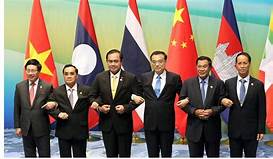
Myanmar’s military government hosted the first high – level regional meeting since the Army took power in 2021.
- China’s Foreign Minister and counterparts from Mekong Delta nations attended the meeting.
- Foreign Minister of China along with his colleagues from Myanmar, Laos, Thailand, Cambodia and Vietnam at the Mekong – Lancang Cooperation group meeting.
- It was held in the central city of Bagan, a UNESCO World Heritage site.
- The theme of the meeting was “Solidarity for Peace and Prosperity”.
- The grouping is a Chinese led initiative that includes the countries of the Mekong Delta, a potential source of regional tensions due to an increasing number of hydroelectric projects that are altering the flow and raising concerns of ecological damage.
- China has built 10 dams along the upper stretch of the Mekong, the part it calls the Lancang.
- China has been criticized for the dams upstream on the Mekong river which affect water levels and downstream fisheries that are important to several Southeast Asian nations’ economies.
Digital India Week 2022:

The Prime Minister has inaugurated the Digital India Week 2022 under the Digital India Programme, with the aim to strengthen Ease of Doing Business and Ease of Living.
- Theme: ‘Catalyzing New India’s Techade’.
- To transform the nation into a digitally empowered society and knowledge economy.
- During the programme, PM launched multiple digital initiatives aimed at enhancing the accessibility of technology, streamlining service delivery to ensure ease of living and giving a boost to startups.
Digital Initiatives:
Digital India Bhashini:
- Digital India BHASHINI is India’s Artificial Intelligence (AI) led language translation platform.
- A Bhashini Platform will make Artificial Intelligence (AI) and Natural Language Processing (NLP) resources available to MSME (Medium, Small and Micro Enterprises), Startups and Individual Innovators in the public domain.
Digital India GENESIS:
- Digital India GENESIS’ (Gen-next Support for Innovative Startups) is a national deep-tech startup platform to discover, support, grow and make successful startups in Tier-II and Tier-III cities of India.
My Scheme:
- It is a service discovery platform facilitating access to Government Schemes.
- It aims to offer a one-stop search and discovery portal where users can find schemes that they are eligible for.
Meri Pehchaan:
- It is National Single Sign On (NSSO) for One Citizen Login.
- It is a user authentication service in which a single set of credentials provide access to multiple online applications or services.
Chips to Startup (C2S) Programme:
- The C2S Programme aims to train specialized manpower in the area of design of semiconductor chips at Bachelors, Masters and Research levels, and act as a catalyst for the growth of Startups involved in semiconductor design in the country.
- It offers to mentor at the organisational level and makes available State-of-the-art facilities for design to the institutions.
Indiastack global:
- It is a global repository of key projects implemented under India Stack like Aadhaar, UPI (Unified Payment Interface), Digilocker, Cowin Vaccination Platform, Government e MarketPlace, DIKSHA Platform and Ayushman Bharat Digital Health Mission.
- It will help position India as the leader of building Digital Transformation projects at population scale.
Key Amendments Proposed In The Environment Protection Act:
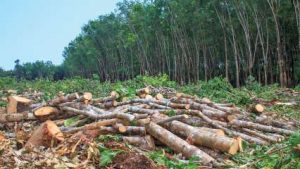
The Ministry of Environment, Forest and Climate Change proposed amendments in the Environment Protection Act, 1986.
- Incidentally, the Environment Protection Act provisions will be in force for penal provisions of the single use plastic ban which has come into force recently.
- The Ministry has proposed the decriminalisation of the existing provisions of the EPA, 1986 in order to weed out fear of imprisonment for simple violations.
- It involves removal of imprisonment as a penalty for the “less severe’’ contraventions.
- However, serious violations of EPA which lead to grievous injury or loss of life shall be covered under the provision of Indian Penal Code.
- Failure or contravention or non-compliance of the provisions of EPA such as submitting reports, furnishing information etc. will now be dealt by imposing a monetary penalty through duly authorised Adjudicating Officer.
- Instead of imprisonment, the amendments propose the creation of an Environmental Protection Fund in which the amount of penalty imposed by the Adjudicating Officer after adjudicating the damage to the environment shall be remitted.
- The Central Government may prescribe the manner in which the Protection Fund shall be administered.
International Day Of Cooperatives:
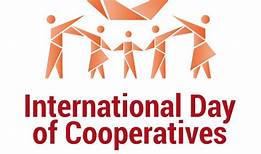
100th International Day of Cooperatives was observed.
- India celebrated the day under the theme “Building a Self-Reliant India and a Better World through Co-operatives”.
- The International Day of Cooperatives was declared by the United Nations General Assembly on 16th December 1992, on the first Saturday of July.
- The purpose of this festival is to promote cooperatives globally and foster an environment that will foster their expansion and profitability.
- The occasion highlights the cooperative movement’s contributions to tackling the major issues addressed by the United Nations as well as to enhancing and expanding the alliances between the cooperative movement internationally and other actors.
- It aims to raise awareness of cooperatives and further the values of the movement—
- International solidarity,
- Economic efficiency,
- Equality,
- Global peace.
- Theme for 2022: Cooperatives Build a Better World.
Chenkurinji:

Saving Chenkurinji from climate change
- The Shendurney Wildlife Sanctuary derives its name from Gluta travancorica, a species endemic to the Agasthyamala Biosphere Reserve known as ‘Chenkurinji’ in local parlance.
- Shendurney Wildlife Sanctuary is a protected area in the Western Ghats, India, located in Kollam district of Kerala and comes under the control of Agasthyamalai Biosphere Reserve.
Properties:
- Medicinal properties and are used to lower blood pressure and treat arthritis.
- The heartwood is quite sturdy with deep red colour thus attracting the wood industry.
- ‘Save Chenkurinji’, is a campaign to be implemented in various areas to create awareness regarding its conservation.
Large Hadron Collider:

The world’s most powerful particle collider, the Large Hadron Collider (LHC), will begin smashing protons into each other at unprecedented levels of energy beginning July 5.
- It is expected to throw up evidence of “new physics” — or physics beyond the Standard Model of Particle Physics, which explains how the basic building blocks of matter interact, governed by four fundamental forces.
- The Large Hadron Collider is a giant, complex machine built to study particles that are the smallest known building blocks of all things.
- LHC is a 27-km-long track-loop buried 100m underground on the Swiss-French border.
- In its operational state, it fires two beams of protons almost at the speed of light in opposite directions inside a ring of superconducting electromagnets.
- The magnetic field created by the superconducting electromagnets keeps the protons in a tight beam and guides them along the way as they travel through beam pipes and finally collide.
- The particles are so tiny that the task of making them collide is akin to firing two needles 10 km apart with such precision that they meet halfway.
- Since the LHC’s powerful electromagnets carry almost as much current as a bolt of lightning, they must be kept chilled.
- It uses liquid helium to keep its critical components ultracold at minus 271.3 degrees Celsius, which is colder than interstellar space.
Niti Aayog Report On Alternatives To Plastics:
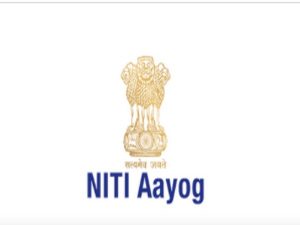
A Niti Ayog report has suggested on plastic alternatives or technologies making plastic degradable
- According To Report: India produces 3.47 mn tn of plastic waste/year, out of which 60% is collected for recycling.
- Goa, Delhi & Kerala have reported the highest per capita plastic waste generation, while Nagaland, Sikkim and Tripura have reported the lowest per capita plastic waste generation.
- Globally, 97-99% of these plastics are derived from fossil fuel feedstock while the remaining 1-3% come from bio (plant) based plastics
Recommendations:
- Develop emerging technologies:g., additives can make plastics biodegradable polyolefins, such as polypropylene and polyethylene
- Use of Bio-plastics: as a cost-effective alternative to plastics
- Appreciate the contribution of the Informal sector and vulnerable groups in recycling waste
- Use Extended Producer responsibility to minimize waste
- Levelling and collection of compostable and biodegradable plastics
- Transparency: Disclose data on waste generation, collection and disposal
- Avoid greenwashing: Greenwashing is the process of conveying misleading information about how a company’s products are more environmentally sound
Development Of Enterprise And Service Hubs (DESH):

The government plans to table the Development of Enterprise and Service Hubs (DESH) Bill to overhaul the special economic zones (SEZ) legislation. DESHs as the DESH Act will replace the current SEZ Act of 2005.
- WTO’s dispute settlement panel has ruled that India’s export-related schemes, including the SEZ Scheme, were inconsistent with WTO rules since they directly linked tax benefits to exports.
- Countries aren’t allowed to directly subsidize exports as it can distort market prices.
- SEZ started losing its allure after the introduction of minimum alternate tax and a sunset clause to remove tax sops.
- SEZ units used to enjoy 100% income tax exemption on export income for the first five years, 50% for the next five years, and 50% of the ploughed back export profit for another five years.
- The DESH legislation goes beyond promoting exports and has a much wider objective of boosting domestic manufacturing and job creation through ‘development hubs’.
- These hubs will no longer be required to be net foreign exchange positive cumulatively in five years (i.e, export more than they import) as mandated in the SEZ regime, and will be allowed to sell in the domestic area more easily.
- The hubs will, therefore, be WTO-compliant.
- DESH legislation also provides for an online single-window portal for the grant of time-bound approvals for establishing and operating the hubs.
INAS 324 Squadron:
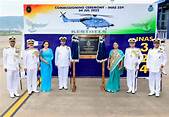
The Indian Navy commissioned a new Indian Naval Air Squadron 324 at eastern Naval Command.
- It will enhance the surveillance capability on the Eastern Seaboard.
- The unit is the Eastern Seaboard’s first Naval Squadron to use indigenously designed and built Advanced Light Helicopter (ALH) MK III (MR) helicopters.
- It has been named “KESTRELS”, which are birds of prey and have good sensory capabilities, symbolising the aircraft’s and air squadron’s intended role.
- The Squadron’s insignia depicts a ‘KESTREL’ searching over vast blue and white sea waves, representing the Squadron’s integral Maritime Reconnaissance (MR) and Search and Rescue (SAR) role.
- Its equipped with ALH MK III helicopters which have state-of-the-art equipment which includes modern surveillance radar and electro-optical sensors.




